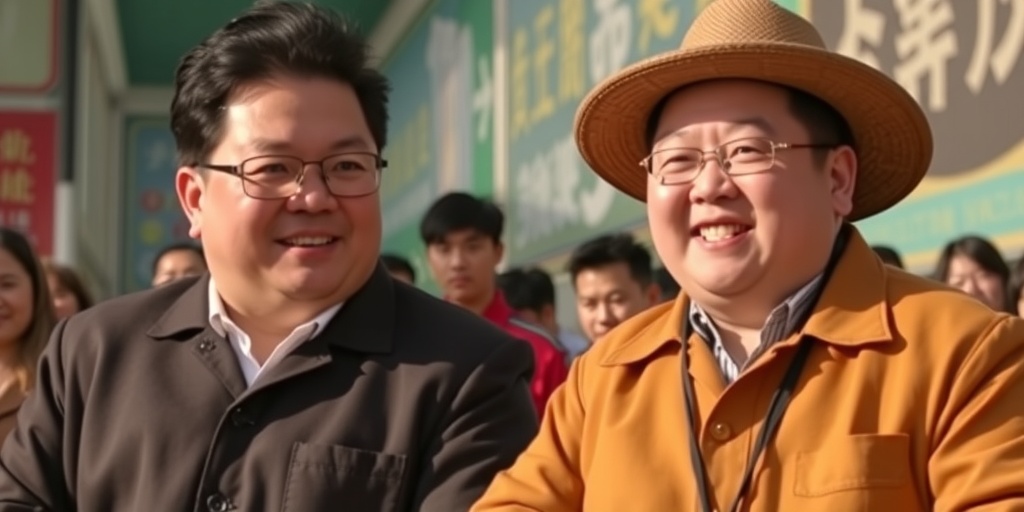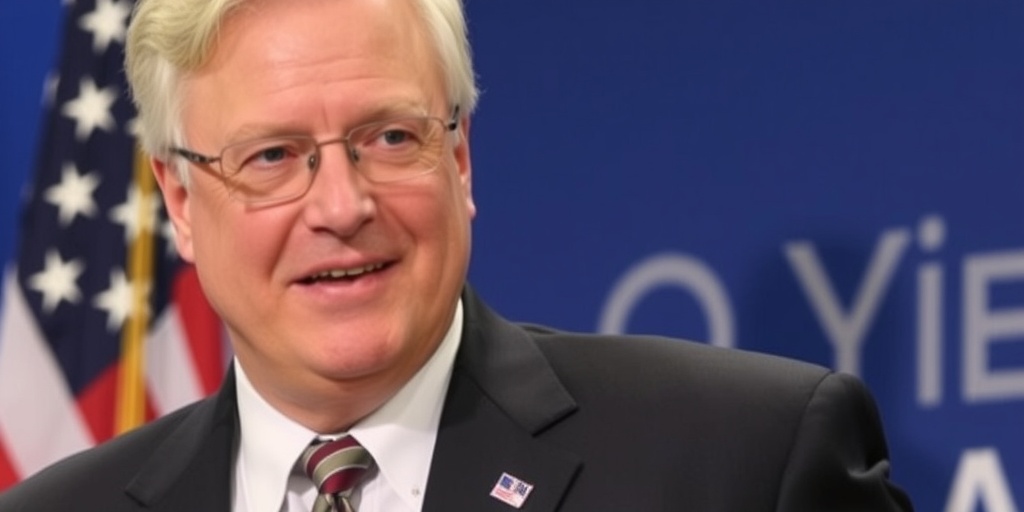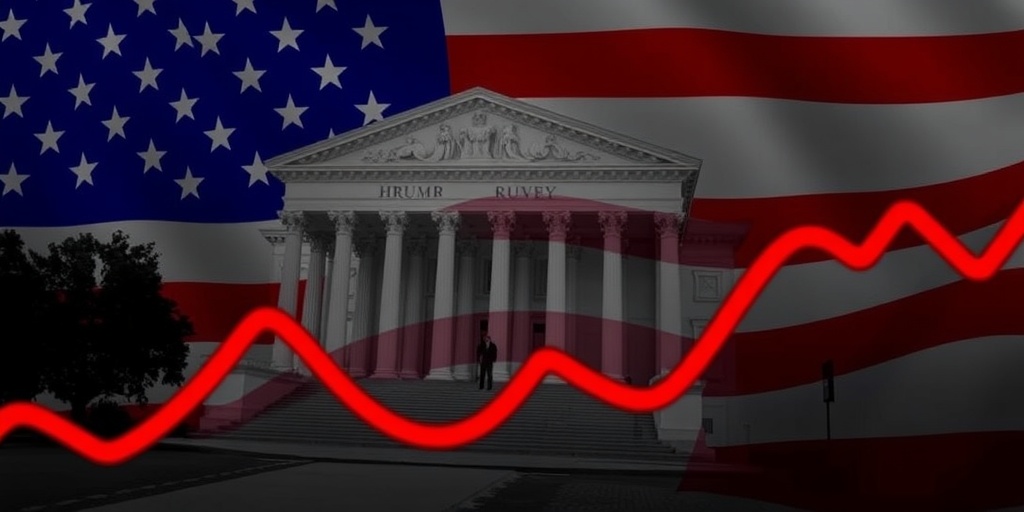Now Reading: China Slams JD Vance for Referring to Its People as ‘Peasants’
-
01
China Slams JD Vance for Referring to Its People as ‘Peasants’
China Slams JD Vance for Referring to Its People as ‘Peasants’

Title: Tensions Rise Between U.S. and China Over Recent Remarks by Vice President Vance
In a striking escalation of rhetoric, Beijing has condemned Vice President JD Vance’s remarks made during a recent television interview, branding them as “ignorant.” The controversy erupted after Vance claimed that the United States was borrowing money from "Chinese peasants" to finance its consumption of products manufactured abroad. His comments were made during an interview with Fox News, where he defended the Trump administration’s imposition of sweeping global tariffs.
Lin Jian, a spokesman for the Chinese foreign ministry, responded sharply to Vance’s statements during a news conference on Tuesday. He articulated China’s displeasure, asserting, “China’s position on Sino-U.S. economic and trade relations has been made very clear. It is surprising and sad to hear the vice president say such ignorant and impolite words.” Lin’s response underscores the ongoing tension between the two nations, especially in light of escalating trade hostilities.
The historical backdrop of U.S.-China relations is essential to understand the current situation. The United States and China have long been economic powerhouses, engaged in a complicated interdependence characterized by substantial trade volumes. However, recent years have seen a marked increase in protectionist measures, especially under the Trump administration. A significant turning point was the implementation of tariffs on a wide range of Chinese goods, which the administration justified as a means to address the trade deficit and alleged unfair trade practices by China.
Vance’s comments touch on a sensitive nerve, reflecting a broader sentiment among protectionist advocates that questions the benefits of free trade agreements and globalization. He went on to support the Trump administration’s approach by asking what the “globalist economy” has really delivered for American citizens. This rhetoric has resonated with a segment of the American populace who feel left behind by globalization, fearing job losses and economic displacement due to international competition.
In a provocative response, Vance stated, “We borrow money from Chinese peasants to buy the things those Chinese peasants manufacture.” This statement, while highlighting the United States’ reliance on foreign borrowing and imports, has drawn severe criticism from Chinese officials. They argue that such remarks are not only disparaging but also reflect a misunderstanding of the complexities involved in international trade and finance.
China has steadfastly maintained its position in the face of U.S. tariffs, with the Chinese Ministry of Commerce labeling the U.S. approach as “blackmail.” They have signaled that they are prepared to “fight to the end,” suggesting that Beijing is unwilling to capitulate under pressure. This standoff raises fears of a prolonged economic conflict, with both sides potentially suffering significant consequences.
Since the commencement of the trade war, experts have warned of the growing risks to the global economy, including inflationary pressures. The concern is particularly relevant as the United States imported approximately $440 billion in goods from China last year. This figure cements China’s position as the second-largest source of imports for the U.S., trailing only Mexico.
The ramifications of the ongoing trade war extend beyond merely financial markets. As tariffs increase, prices for everyday goods may rise, directly impacting American consumers. Industries that rely heavily on imported components are also likely to feel the pinch, which could lead to higher production costs and consumer prices.
Moreover, as international leaders and economists express increasing alarm regarding the long-term effects of such policies, the potential consequences for both the U.S. and global economic landscape loom large. In the aftermath of the remarks made by Vice President Vance and the rising tensions with China, the call for a re-evaluation of U.S. trade strategies has become ever more urgent.
In conclusion, the exchange between Vice President Vance and the Chinese government highlights not only the contentious nature of current U.S.-China relations but also the broader issues surrounding globalization, trade, and economic policy. Moving forward, it remains to be seen how both nations will navigate this fraught landscape, and whether dialogue and cooperation can replace hostility and misunderstanding. The stakes are high, and the ramifications of continued conflict could reverberate far beyond the borders of both countries.
As the world watches closely, the resolution of these issues will be pivotal in shaping the future of international trade and diplomacy.
Stay Informed With the Latest & Most Important News
Previous Post
Next Post
-
 01New technology breakthrough has everyone talking right now
01New technology breakthrough has everyone talking right now -
 02Unbelievable life hack everyone needs to try today
02Unbelievable life hack everyone needs to try today -
 03Fascinating discovery found buried deep beneath the ocean
03Fascinating discovery found buried deep beneath the ocean -
 04Man invents genius device that solves everyday problems
04Man invents genius device that solves everyday problems -
 05Shocking discovery that changes what we know forever
05Shocking discovery that changes what we know forever -
 06Internet goes wild over celebrity’s unexpected fashion choice
06Internet goes wild over celebrity’s unexpected fashion choice -
 07Rare animal sighting stuns scientists and wildlife lovers
07Rare animal sighting stuns scientists and wildlife lovers





















